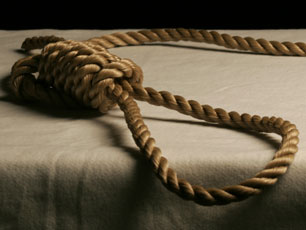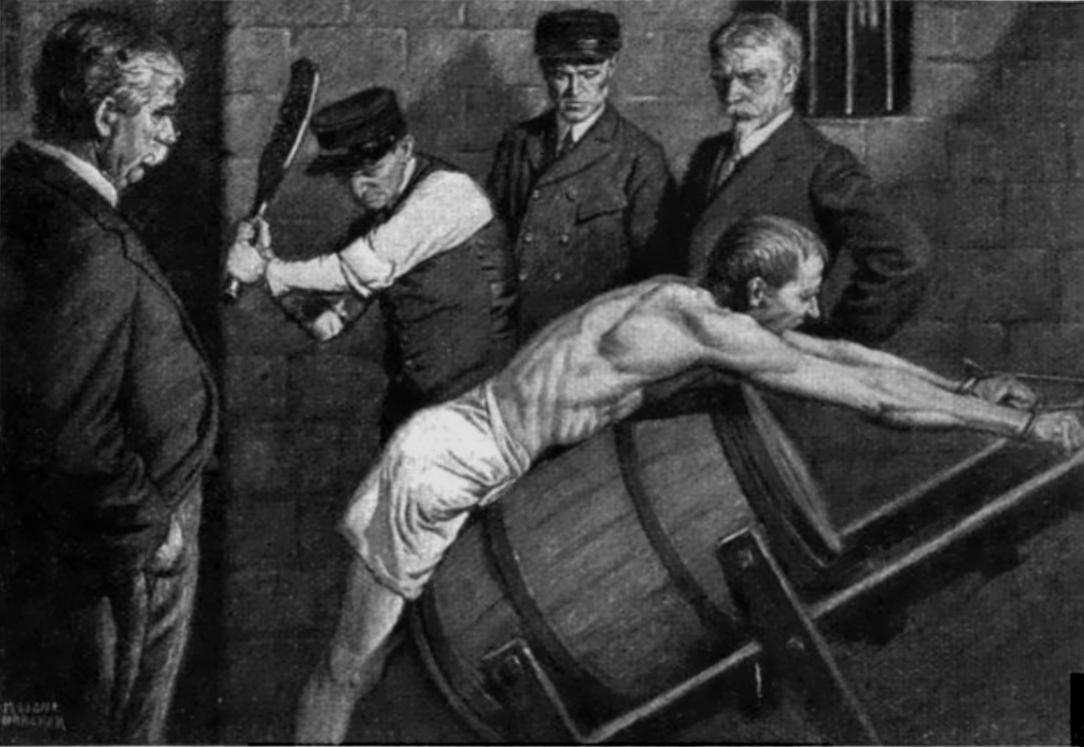Feeling compelled to further explore the question of responsibility without free will, I’m still asking: How can there be responsibility without an entity that assumes it?
 To wit: “The idea of deserving punishment depends upon the idea that criminals freely choose their actions, and if neuroscience reveals that free choice is an illusion, then we can see that the idea of deserving punishment is nonsense.”
To wit: “The idea of deserving punishment depends upon the idea that criminals freely choose their actions, and if neuroscience reveals that free choice is an illusion, then we can see that the idea of deserving punishment is nonsense.”
The legal system is based on blame and punishment. So if there is no independent entity that’s held responsible for his or her actions, won’t criminals run amuck? Just the opposite, then there can be true responsibility.
Though they are often conflated, responsibility and punishment are two different issues. Someone can be clear about responsibility without believing in punishment, and someone can believe in punishment and still be irresponsible.
In a culture as individualistic as America’s, the idea that we aren’t individuals at all is anathema. Such an insight is not even worth considering, except perhaps in some ivory tower salon.
But “the neural basis of behavior” is here to stay, and the notion that “humans can generate spontaneous choices and actions not determined by prior events” is collapsing faster than the Twin Towers. I use that unfortunate metaphor because we are still faced not only with the question of responsibility, but the oldest challenge to spirituality and philosophy—the problem of evil.
Without getting into competing philosophical arguments regarding determinism and compatibilism, neuroscience is undercutting the idea that a discrete, autonomous entity (me, myself and I) stands apart from the flow of life and chooses to act in this or that way. Such a thing does not exist. Insight and logic should have been enough to demonstrate that fact before, but it took neuroscience to attest to the simple truth that there is no ghost in the machine. Responsibility is not by the self, but for the self.
My premise is that responsibility means taking complete ownership of the entirety of content-consciousness within oneself. That means all conditioning, cultural influences, family history, racial memory and prior lives in the recycling bin called karma.
The question of whom or what takes responsibility still arises, but the answer to my mind is nothing—no thing. Responsibility is like hunger; either one feels it or one doesn’t. Though it sounds absurd, it’s more accurate to say, “there is hunger,” and “there is responsibility” than to  say, “I am hungry” or “I am responsible.”
say, “I am hungry” or “I am responsible.”
As I see it, the ‘me’ has many layers, both personal and collective. But they are all essentially superficial, without insight and meaning. There is, in other words, a vast terrain stored in the brain of innumerable generations within us, shards of memory going back to the earliest traces of man.
Probe as deep as you like into that terrain, and you will find nothing but more of the same. It isn’t all darkness—there is a reservoir of goodness in human consciousness as well?
But it’s the dark content that we suppress, deny and distance ourselves from, pretending we aren’t inextricably linked to it by virtue and vice of being human. It is this uncharted continent within us for which we have no choice but to take complete responsibility. That means seeing hate, envy, greed, fear and all the rest as they are and as they arise, without judgment or evaluation.
Doing so, we learn without accumulation; doing so, there is insight without registration; doing so, we grow in goodness.
Responsibility is not individualized; responsibility is for the entirety of consciousness within. And the entire content of man—all the cultures and civilizations that have emerged and passed away, all the wars and slaughters, all the advances and setbacks, all the darkness of the known—is enfolded like a hologram within each one of us.
If we know how to look, the hologram is observed without separation. Then there is something else—the light of insight, the perpetual newness of being, and the intimation and ecstasy of the unknown.
Each one of us, if we don’t want to waste our lives, has to allow the uncovering and unfolding of the story of man within us. That is self-knowing, and it can’t happen as long as there is the observer, the self-centered entity that thinks he or she stands apart, able to judge and choose.
There is no choosing; it is one of the greatest illusions. All choices are conditioned, preconceived and predetermined by our backgrounds. The observer is the chooser, and as long as the program and illusion of the independent entity persists, there can be no freedom.
People who subconsciously react from the conditioning of ‘me’ are not responsible; they are acting out. It’s no good saying, ‘I didn’t intend to.’ Self-knowing means the cessation of acting out, by taking responsibility for the entirety of one’s conditioning.
There are choices, but there is no chooser. Choosing is always confusing. As Socrates pointed out a long time ago, when one is clear, one doesn’t choose, one acts.
Martin LeFevre

